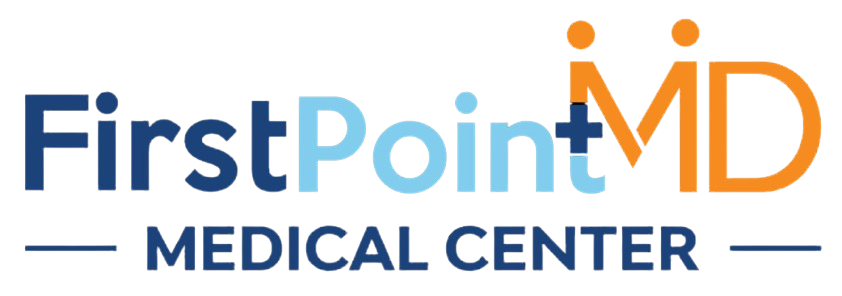In today’s fast-paced digital world, memory loss is no longer confined to older adults. Increasingly, younger generations—students, professionals, and even teenagers—are reporting cognitive challenges, forgetfulness, and difficulty focusing. This shift has raised serious concerns about brain health and the factors contributing to declining memory function at an earlier age.
At First Point MD, we believe in empowering individuals with knowledge, prevention strategies, and actionable steps to protect their memory and maintain long-term cognitive well-being. Below, we explore the surprising reality of memory loss among younger people and practical strategies to preserve brain health.
Why Memory Loss Is Becoming Common in Younger Generations
Memory decline is often thought of as an inevitable part of aging. However, new research suggests that environmental stressors, technology use, poor lifestyle habits, and health conditions are accelerating cognitive decline in younger populations.
Digital Overload and Technology Dependence
Excessive reliance on smartphones, social media, and digital devices has reshaped the way the brain processes and stores information. With constant notifications, multitasking, and scrolling, the brain is rarely given the chance to deeply focus or encode memories. Studies show that “Google effect” or “digital amnesia” leads to reduced recall because people assume information can always be found online.
Chronic Stress and Anxiety
Younger adults are experiencing unprecedented levels of stress, whether from academic pressure, financial instability, or career demands. Chronic stress increases cortisol levels, which can damage the hippocampus—the area of the brain responsible for memory and learning.
Poor Diet and Lack of Nutrition
Diet plays a central role in brain health. Diets high in processed foods, refined sugars, and unhealthy fats deprive the brain of essential nutrients like omega-3 fatty acids, antioxidants, and B vitamins. Over time, poor nutrition can lead to reduced brain function, sluggishness, and memory problems.
Sleep Deprivation
Sleep is critical for memory consolidation, the process by which short-term memories are transformed into long-term ones. With younger people often sacrificing sleep for work, study, or late-night entertainment, their brains are losing out on crucial restorative processes.
Underlying Health Issues
Conditions such as depression, ADHD, autoimmune diseases, or even vitamin deficiencies can manifest as cognitive decline or memory lapses in younger individuals. Identifying and addressing these root causes is vital to restoring memory health.
Warning Signs of Memory Loss in Younger People
Memory lapses are not always alarming, but when they interfere with daily life, it’s important to pay attention. Some key warning signs include:
-
Frequently misplacing objects
-
Difficulty recalling recent conversations
-
Trouble focusing on tasks or learning new information
-
Forgetting names, dates, or appointments often
-
Feeling mentally “foggy” or easily distracted
-
Repeating the same questions in conversations
Recognizing these symptoms early allows individuals to take proactive measures before memory issues worsen.
How to Protect Brain Health and Prevent Memory Loss
The good news is that memory loss is not inevitable. By adopting certain lifestyle and wellness strategies, younger generations can safeguard brain health and maintain cognitive performance throughout their lives.
Prioritize Quality Sleep
Aim for 7–9 hours of restful sleep each night. Developing a consistent bedtime routine, limiting screen time before bed, and creating a dark, cool environment can dramatically improve sleep quality and memory function.
Nourish Your Brain with a Healthy Diet
A brain-boosting diet should be rich in:
-
Omega-3 fatty acids (found in salmon, walnuts, flaxseeds)
-
Antioxidant-rich fruits and vegetables (berries, leafy greens)
-
Whole grains for steady glucose supply
-
Lean proteins to support neurotransmitter production
Limiting processed foods, sugary snacks, and alcohol can also reduce brain inflammation.
Stay Physically Active
Regular exercise enhances blood flow to the brain and stimulates the release of growth factors that improve memory and learning. Even 30 minutes of brisk walking, yoga, or aerobic activity can significantly boost cognitive performance.
Manage Stress Effectively
Stress management is essential for long-term brain health. Techniques such as meditation, mindfulness, deep breathing, and journaling help regulate cortisol levels and improve focus.
Train Your Brain Daily
Mental stimulation is as important as physical activity. Challenge your brain with puzzles, reading, memory games, or learning new skills. These activities strengthen neural pathways and support long-term memory.
Limit Technology Overuse
While technology is unavoidable, it is important to set boundaries. Take digital detox breaks, schedule device-free hours, and practice mindful technology use to restore attention span and focus.
Stay Socially Engaged
Strong social connections are linked to better memory retention and emotional well-being. Engage in meaningful conversations, community activities, or volunteer work to keep the brain active.
Regular Health Check-Ups
Routine medical visits can help detect underlying health issues that contribute to memory loss. Conditions such as thyroid imbalance, vitamin deficiencies, or chronic illness can be addressed early with proper treatment.
The Role of Mental Health in Memory Preservation
Mental health and memory are deeply interconnected. Anxiety, depression, and burnout can all impair concentration and recall. Younger individuals facing mental health struggles may find that their cognitive symptoms improve with therapy, counseling, or medical treatment. Protecting memory health often requires a holistic approach that balances both physical and emotional well-being.
Can Memory Loss in Younger Generations Be Reversed?
In many cases, yes. By adopting healthy habits, correcting nutritional imbalances, treating underlying conditions, and reducing stress, the brain has the ability to recover and regenerate. Neuroplasticity—the brain’s ability to form new connections—means that even when memory challenges arise, improvement is possible with consistent effort.
Practical Daily Habits for Sharper Memory
-
Start the day with hydration and a nutrient-dense breakfast.
-
Use a planner or journaling system to stay organized.
-
Practice the Pomodoro technique to maintain focus at work or study.
-
Engage in creative hobbies like painting, music, or writing.
-
Take short outdoor breaks to refresh mental clarity.
-
Express gratitude daily to reduce stress and enhance positivity.
These small, consistent steps create a foundation for long-term brain vitality and resilience.
Looking Ahead: A Healthier Brain for the Future
The rising trend of memory loss in younger generations is a wake-up call for individuals, families, and healthcare providers. Instead of waiting for serious decline, proactive action today can safeguard memory for decades to come. At First Point MD, we encourage everyone—regardless of age—to make brain health a daily priority. With the right lifestyle choices, preventive care, and mindfulness, we can protect memory and enjoy a sharper, healthier future.


